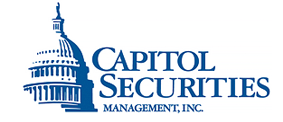By: Kent Engelke | Capitol Securities
The initial print of first quarter GDP was disappointing. The economy expanded by 0.7%, the slowest pace in 3 years. Consumer spending, the biggest part of the economy, rose by 0.3%, the worst performance since 2009. Business spending however was encouraging. Inventories fell which subtracted from growth, but trade added to GDP.
The PCE — or the primary inflationary indicator used by the Federal Reserve — rose by 2.3% versus the expected increase of 2.0%. Real disposable income rose at a 1% pace, the weakest since the fourth quarter of 2013.
Is stagflation present defined as greater than expected inflationary pressures and lower than expected growth? The bond market sold off on the news and equities were soft, thus suggesting the possibility of such.
Even though I was disappointed with the data, I believe if there is tax and regulatory reform, monies will gravitate into the real economy versus Wall Street, thus producing greater than expected growth. I think society is exhausted by Washington, demanding pro-growth policies.
Government does not create jobs or economic growth, but rather enacts policies conducive for job and economic creation.
As noted several times, this is the longest period in history that growth has not exceeded 3% for one year… 10 years. The previous record was 4 years from 1930-34. The economy expanded an average of 2.1% under President Bush and 1.5% under President Obama.
As I stated above, I think if there is tax and regulatory reform where funds gravitate to the real economy, growth will exceed 3%.
How will this impact the markets? Last week I referenced a WSJ article indicating that only 5 stocks were responsible for over 41% of NASDAQ’s 2017 annual gain. The narrowness is incredible. Utilizing 2000 as a reference, 50 stocks were responsible for about 60% of its gain. The NASDAQ then plunged about 70% in 2 years and took 3,766 trading days to recover its losses.
What happens if growth does exceed expectations? Worse, what happens if stagflation further develops? I think if growth exceeds estimates, Main Street will vastly outperform Wall Street. If stagflation unfolds, both “streets” will suffer, but the greatest wealth destruction may be in the “Wall Street issues” given their massive over ownership.
Speaking of which, many legendary luminaries are cautioning about the vast concentration of wealth into a few names and one sector, the result of ETFs and electronic based trading, stating declaratively that such concentrations do not end well.
Many times I have commented about the growing dangers of today’s passivity where geopolitical thought and security analysis is not even considered. I think it is significant that even firms that champion the use of such passive investment strategies are offering strong words of caution.
What will happen this week? It is a heavy earnings and data week. Statistics released are various employment reports, manufacturing surveys and a FOMC meeting. No change is expected at a Wednesday Fed meeting, but its post-meeting statement will be closely analyzed.
Last night the foreign markets were mixed. London was down 0.46%, Paris was down 0.08% and Frankfurt was down 0.05%. China was up 0.08%, Japan was up 0.59% and Hang Sang was down 0.34%.
The Dow should open nominally higher. The 10-year is off 3/32 to yield 2.30%.

















